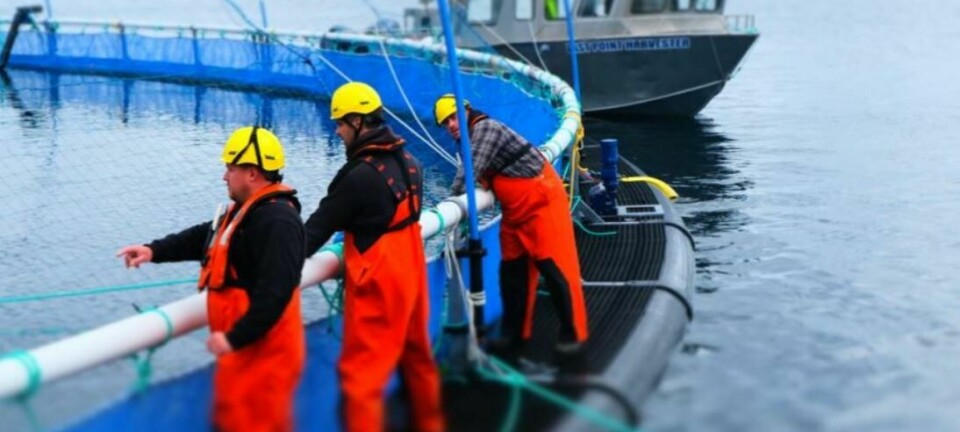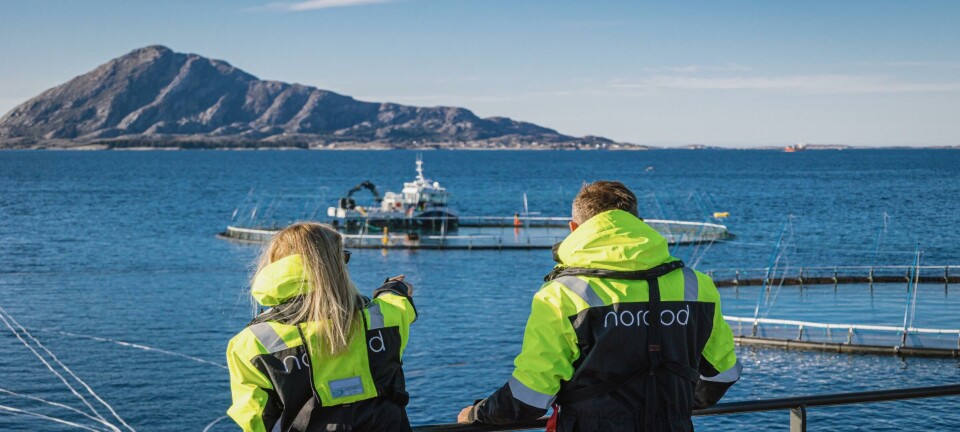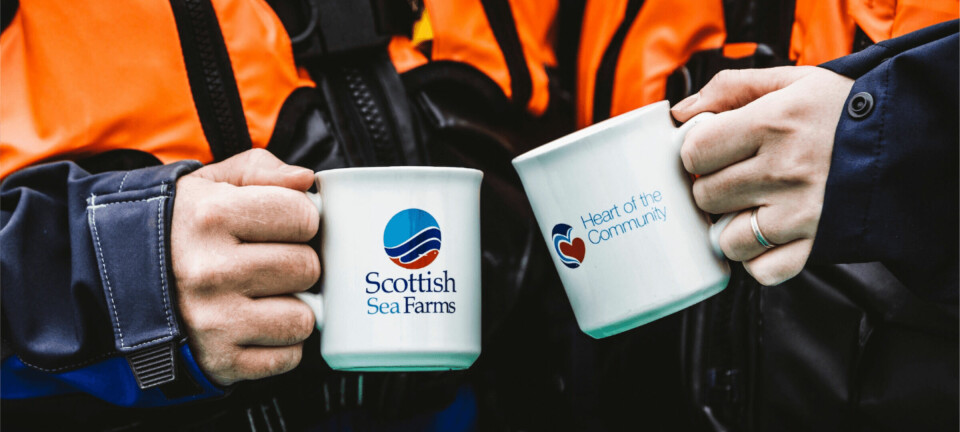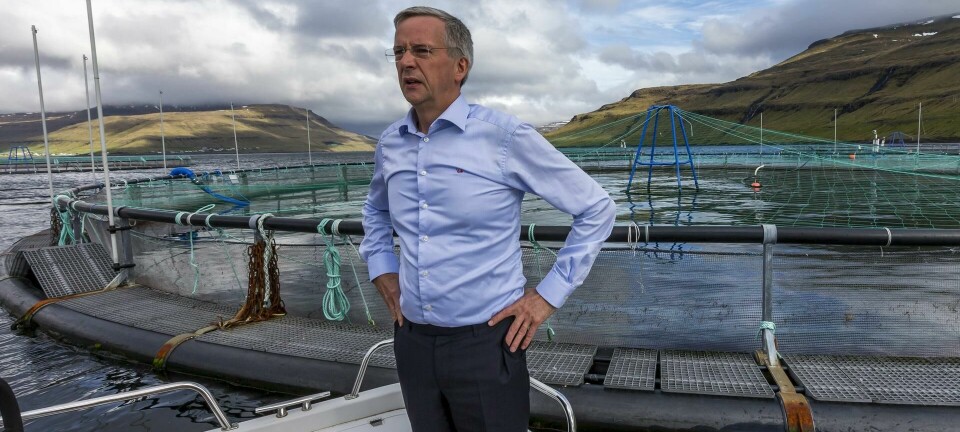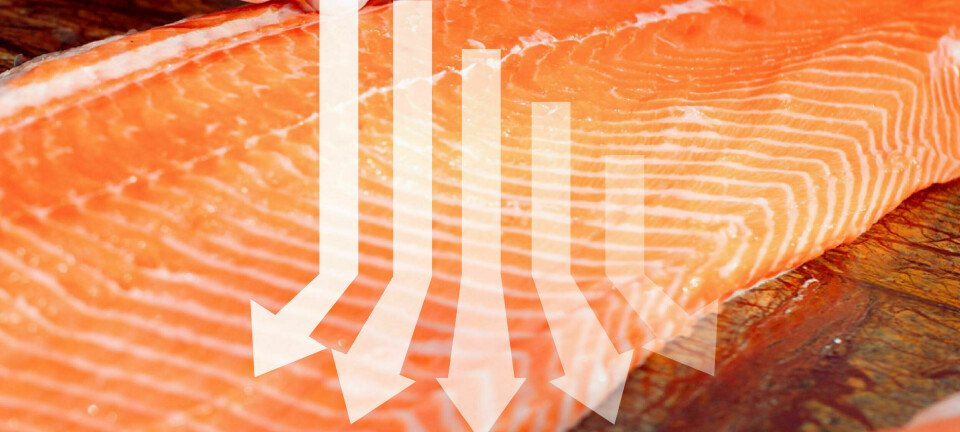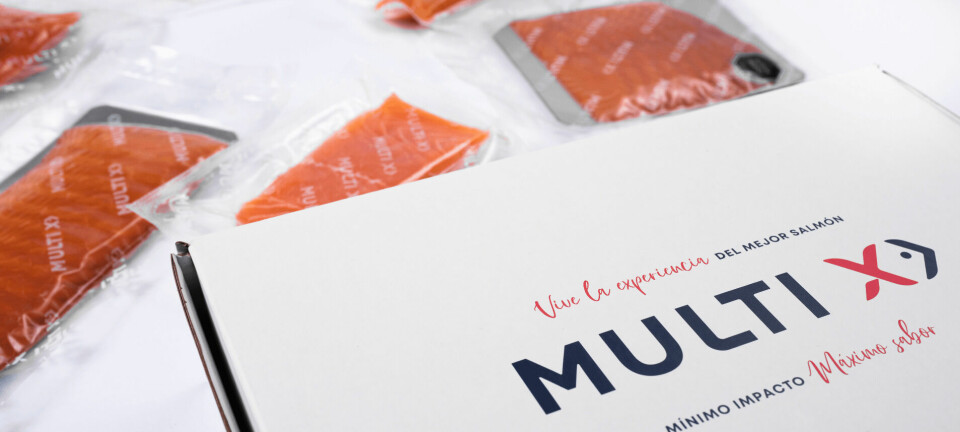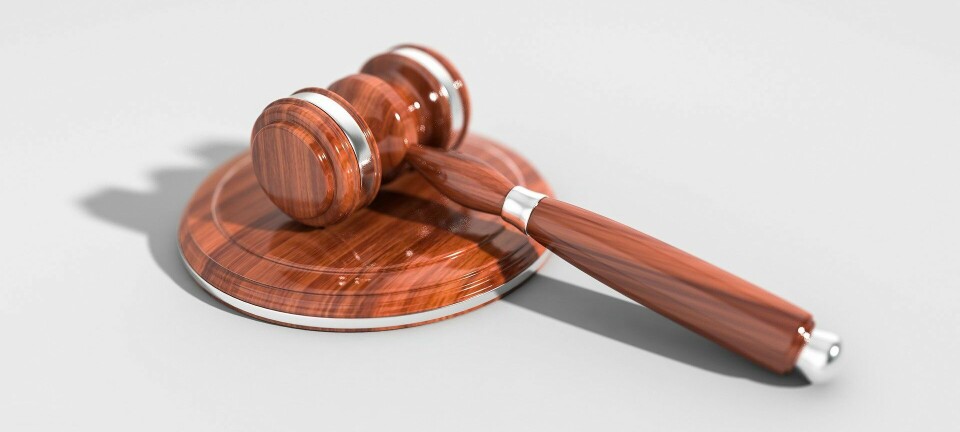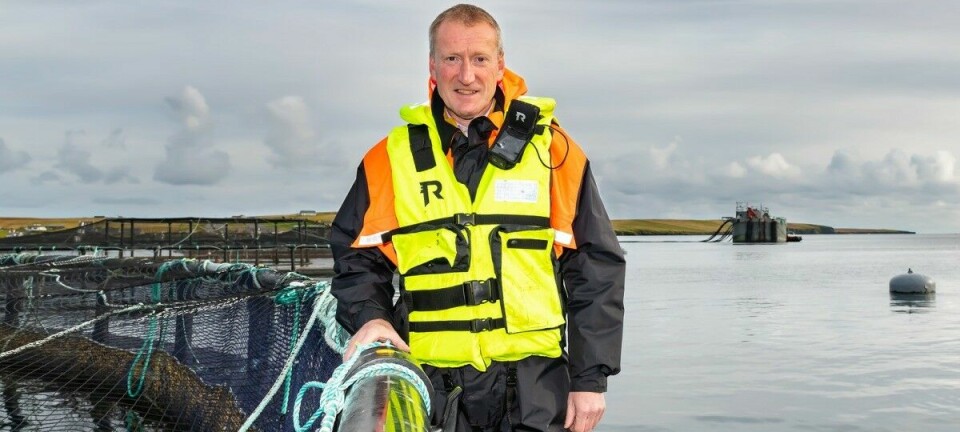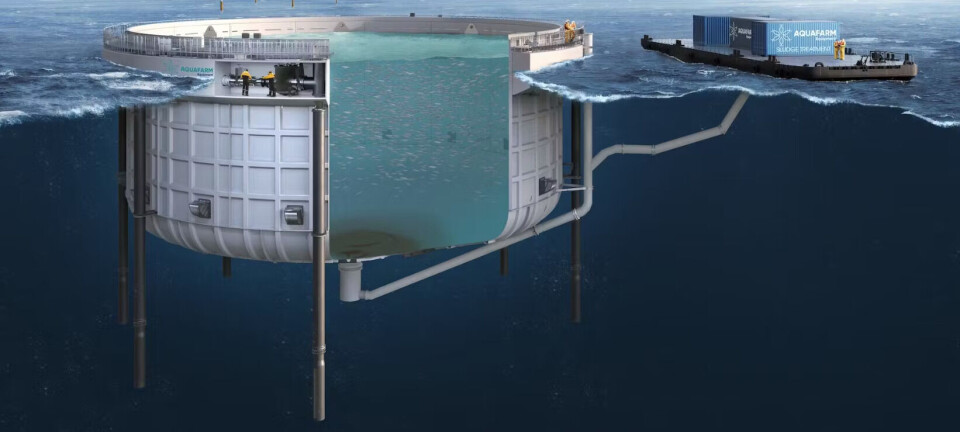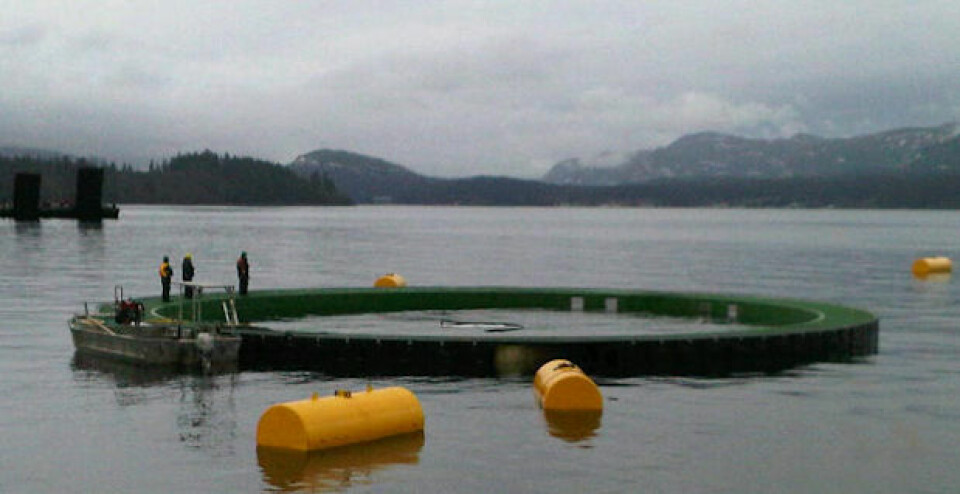
Canada’s biggest bath tub hits the water
If AgriMarine- the owner of a 3,000 cubic meter tank floated at a British Columbia facility last week- were to grow their 50,000 Chinook salmon at a density recommended as maximum by the most experienced producer of farmed Chinook salmon in the province, the company would have to harvest the fish at a weight of just over a pound each (~480 gram). But it would appear that AgriMarine plans to operate with fish densities some 8 times that of Creative Salmon in Tofino, which uses conventional net pens to produce high quality Chinook salmon according to international organic standards. This is assuming that the fish will be grown to a reported average size of 4 Kg each. Even if no more fish were added, and the 50,000 initially stocked fish were to be split between the additional three planned tanks, densities would still exceed "normal" by some 50%. AgriMarine has not responded to a request by FishfarmingXpert for an interview, but the company issued the following Press Release today;
AgriMarine Holdings Inc. (the “Company” or “AgriMarine”), a leader in floating closed containment technology and production for sustainable aquaculture, and the Middle Bay Sustainable Aquaculture Institute (MBSAI) are pleased to announce the successful launch of the first marine based, commercial scale, closed containment tank for rearing salmon.
The launch of Tank 1 at the Middle Bay facility in Campbell River, BC, marks the culmination of years of research and development into alternative sustainable technologies for salmon farming. Intended to address the sustainability challenges faced by conventional net cage fish farming, Tank 1 will showcase the technology for closed containment saltwater salmon aquaculture.
Sean Wilton, President of AgriMarine Industries remarked, “The team in Campbell River has worked very hard over the last months to ensure a smooth assembly and launch process. Additional strengthening and anchor ring supports as well as a high factor of safety mooring and anchoring systems were included in the tank design in order to meet the challenging requirements of the high tidal energy marine site in Campbell River.” The tank will be operational once the life support and waste recovery systems are installed and commissioned and the transfer of Chinook fingerlings into the tank is completed.
MBSAI is a not for-profit organization formed for the purpose of researching and developing the use of commercial-scale solid wall containment systems for aquaculture. Contributing to this project are the following Consortium members: AgriMarine Industries Inc., Coast Sustainability Trust, the US-based Gordon and Betty Moore Foundation (GBMF) and Sustainable Development Technology Canada (SDTC), an arm’s-length, not-for-profit corporation created by the Government of Canada.
According to an article in the National Post, the company is losing money; The company posted a net loss of $2-million(~€1.52 million) in the first six months of 2010, its most recent reporting period, and had an accumulated deficit of $14.5-million(~€11 million). AgriMarine acknowledged in the most recent report to shareholders that its present financial condition “is not sufficient to sustain operations over the next year.”

